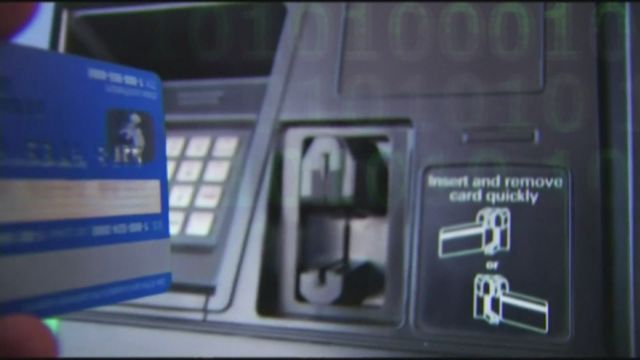MJP –
PHOENIX, Arizona — It seems like scammers are always one step ahead. As soon as you think you know what to look out for, they come up with something new.
Here’s a new twist on an old scam called the Impersonation Scam. You get a phone call or a text message from your bank informing you that your debit card has been fraudulently used, but it’s not your bank; it’s a scammer trying to scare you into making bad decisions.
Margarita Alvarez, a fraud expert with Wells Fargo, told On Your Side that the Federal Trade Commission documented victims were scammed out of $2.7 billion using the Impersonation Scam last year.
“The data is definitely alarming,” Alvarez said.
She said after a scammer convinces you that someone used your card fraudulently, they are now actually deceiving victims into thinking a bank representative will come to their home to help stop the fraud.
“We‘ve seen numerous situations and examples where folks are saying, ‘Well, let me just drive by and come over and pick up your debit card, or why don‘t you proactively mail it to me to this overall address,’” she said.
It sounds crazy, but people are falling for it.
Alvarez also said there’s been a spike in scams that rely on Artificial Intelligence, also known as AI.
“You end up having scammers work to be able to use AI to be able to pose as like a family member, even working down to the details of like being able to impersonate their overall voice,” she said.

Alvarez said there’s also been a spike involving cryptocurrency and investment scams. She says fraudsters manipulate people into making phony investments with cryptocurrency, promising big, quick returns and then disappearing with the funds.
And finally, with online shopping being so popular during the upcoming holidays, you need to avoid shipment and delivery scams. That’s where the scammer poses as FedEx or UPS and says to click on a link regarding delivery problems. Don’t fall for it.
“Scammers are using this method to also be able to obtain information via like tracking numbers and asking you to be able to essentially interact, you know, via text or like your overall mobile device or email,” Alvarez said.
Fraud Alert: Scammers Now Accessing Free Money from Chase ATMs
Remember, never share your personal information. Don’t trust caller ID. Scammers are pros at looking like the call is coming from your bank or sounding like a legitimate banking representative. And don’t be pressured into something.
Alvarez said scammers even contacted her recently trying to dupe her out of money. Little did they know, they were calling a fraud expert who knew better.
“It’s super important to be able to stay vigilant, but if that type of activity can happen to me, can you imagine what’s happening and the level of abuse that’s happening to our day to day average consumer?” she said.
Here are some top imposter scams Wells Fargo is warning to watch out for and tips to protect yourself:
Common Imposter Scams:
- Card “Pick-Up/Replacement” Scam: Scammers pose as bank representatives claiming your debit card has been compromised and tell you they need to pick it up, or they direct you to mail them the card. They may even ask for your PIN as “verification.”
- Artificial Intelligence Scams: Scammers can use AI to clone the voice of a loved one or trusted individual to create deepfake calls, images or videos, then ask for emergency money.
- Payment App Scams: Scammers send texts or emails asking you to confirm or decline a fake payment or charge. If you respond, they may call back pretending to be a bank representative and then trick you into sending money – often via another P2P payment method, gift card, wire transaction, or by sending money directly into another account – in order to “reverse the payment” or keep further “fraud” from occurring.
- Cryptocurrency and Investment Scams: Fraudsters manipulate people into making phony investments with cryptocurrency, promising big, quick returns and then disappearing with the funds.
Prevalent Holiday Scams:
Scam! A New Scandal Has Wells Fargo Freezing Bank Accounts
- Package Delivery & Shipment Scams: Scammers send a bogus email or text stating there is a problem with the delivery or shipment and provides you with a fake tracking link/code. Clicking the link can either direct you to provide personal/financial information or even install malware into your device.
- Online Marketplace Merchandise Scams: Scammers lure you in by offering great deals or deep discounts that aren’t real. They may use fake websites, social media ads, a hacked social media account of a friend or malicious links to try to steal your personal information or money.
Tips to Protect Yourself:
- Wait & Validate: If you receive an unexpected text, email or phone call, do not respond or click any links. Verify the legitimacy of the communication.
- Verify Recipient: Only send money to someone you know, trust and can confirm their identity. Once you approve sending the funds, the money leaves your account and is often unrecoverable.
- Set Up Alerts: Use account alerts and two-factor authentication and monitor your accounts frequently.
- Be Vigilant: Anyone can experience a scam. When in doubt, stop and get help.
- Don’t Share Personal Information: Don’t share your username, passwords, PIN numbers or access codes.
- Don’t Trust Caller ID: Scammers can spoof legitimate phone numbers by altering caller ID.
- Don’t Be Pressured: If someone asks you to make a payment using a gift card, cryptocurrency or a prepaid card, it’s a clear sign of a scam.




